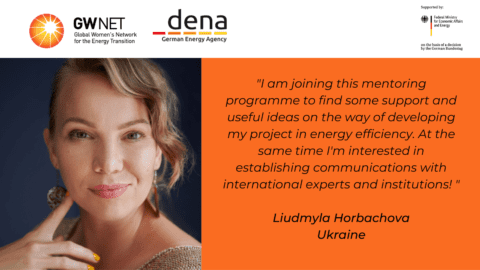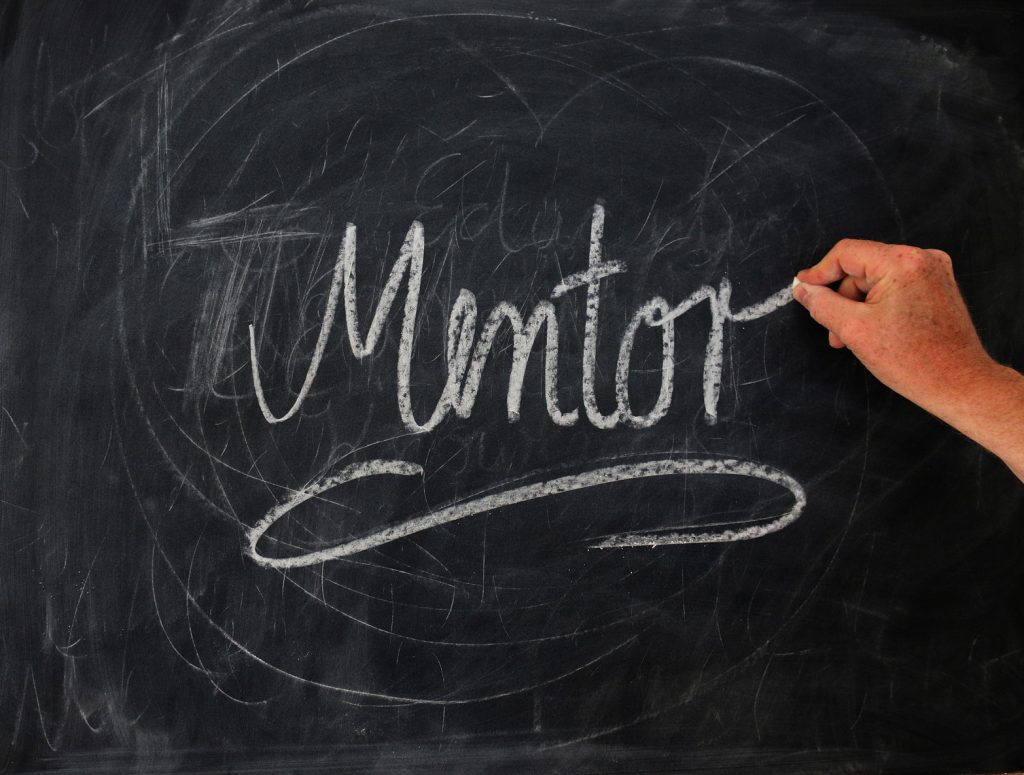This week we sat down with Stine Carlé, an alum of the GWNET 1/2018 Mentoring Programme and the Co-Founder & COO at AMMP Technologies in the Netherlands, to discuss her journey in the energy transition as well as her recent professional success.
1) Tell us about your professional journey. How did you start out in the energy sector?
From the start, my career and professional ambitions have been focused on helping solve some of the most pressing environmental challenges. I have held business, strategy, operations and development roles for startups as well as multi-national companies across Europe and Africa. Before starting AMMP in 2018, I worked with AMMP’s other two co-founders, Svet Bajlekov and Hendrik Broering, at Rafiki Power, a former E.ON SE company. At Rafiki, we were responsible for the deployment and operations of renewable mini-grids for rural electrification in Africa. During this time, we identified several infrastructural and technological hurdles that energy operators faced in operating these decentralised electricity grids.
We leveraged our strong background in on-ground system operations in sub-Saharan Africa and an in-depth understanding of the energy access challenge, to launch AMMP. AMMP is a transformative tool that enables energy companies to remotely monitor and manage decentralised energy systems. We do this in a vendor and technology agnostic way, i.e. we bring together valuable insights from all components of energy systems into a unified platform.
With AMMP, energy operators can save on their operational costs, remotely diagnose system problems, and minimise downtime. Since our launch in 2018, we have been able to bring advanced and innovative features such as instant alerting and preventive maintenance, amongst others.
In mid-2018, we began operations with 8 systems on our monitoring platform, and now, we have nearly 1,000 systems on 6 different continents.
2) What drives your interest in the energy transition?
Despite all the commendable advances we have made with rural electrification, there are still over 750 million people who currently have no access to electricity. Furthermore, in sub-Saharan Africa alone, there are more than 50 million polluting diesel generators installed.
We believe that decentralized energy can address both these challenges by enabling access for the unelectrified as well as offering a clean, cost-effective alternative to fossil fuels. We are driven by this goal and offer digital tools that help the next generation of energy companies build robust renewable energy infrastructure.
Moreover, the current pandemic has further highlighted the critical need for uninterrupted access to energy. So much so, that electricity should qualify as an ‘essential service’. As physical mobility and access to sites became even more limited, we ensured that our customers have round-the-clock access to vital data about their remote systems – so that they can continue to provide reliable power.
3) What has been your biggest professional success?
AMMP is now monitoring nearly 1,000 systems in 17 countries through our platform. I consider this as my team and I’s biggest professional success so far, but we are just getting started. We are on a mission to make clean, reliable, decentralized energy accessible around the world.
Additionally, being able to close an investment round with a reputable VC such as Point Nine in a field that doesn’t fall within their usual turf is not just a success for AMMP, but for everyone working hard to drive the energy transition forward.
With the investment of €1.15M from Point Nine in partnership with The Raba Partnership and Musha Ventures, we will be able to significantly scale up the deployment of our platform in more emerging markets.
4) What challenges have you faced in the sector? How did you overcome (or how are you overcoming) these challenges?
The biggest challenge in the energy sector is probably the pace at which things are improving. Reaching the goal of ensuring sustainable, reliable and clean energy for all sometimes seems quite far away. That can become a bit demotivating. However, you have to reflect on what you personally were able to achieve, what the team that you are working with was able to deliver, and what the company that you are working for has contributed as a whole. You have to be realistic about it.
5) What was the biggest lesson you learned as a participant in the GWNET Mentoring Programme?
Taking time to think, reflect, and plan. My mentor, Christine Lins, once said “you have to plan the year, otherwise the year plans for you”. Sometimes when life is going full steam ahead, months pass without you really noticing it. At some point, you have to stop and ask yourself, whether you are working towards the right goals, both professionally and personally. You have to actively sit down, reflect on where you are headed, and whether that is the right path, and if not, set new goals and plan how you will achieve them.

GWNET alum, Stine Carlé (left), with her mentor, Christine Lins (middle), and fellow GWNET alum, Filagot Tesfaye (right), at the SolarPower Europe conference.
6) What advice would you give to women hoping to advance the energy transition?
The energy transition space can benefit immensely from greater representation and diversity, especially in leadership roles. It is becoming increasingly important to have representative influence towards policy making and product development in the energy space.
It might sound cliché, but I’m going to quote Nike – Just do it! That goes for various steps: you have the idea and need to take the next step of trying it out; you realise that you need to make a drastic change, better do it sooner than later; you have a new idea come to mind, maybe an adjacent market. You need to go ahead and take risks, otherwise, you won’t be going anywhere.
Please do not shy away from asking for advice, be it from your peers or mentors. One thing that I have learnt over the years is that every time I have reached out to someone they have been extremely open and keen to support.
Read more about GWNET’s mentoring programmes here.











